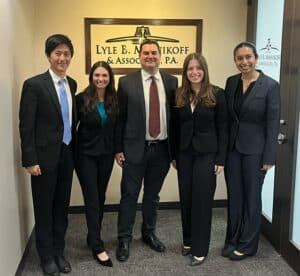Although Menendez won at trial court, she lost on appeal primarily under the argument that the insured failed to comply with a statute enacted after the date of the automobile accident that placed additional requirements on an injured person seeking to recover PIP benefits before filing suit. Specifically, after the issuance of the policy to the insured and after the accident date, an amendment was passed in Florida PIP law that started requiring a PIP claimant to provide a pre-suit notice of intent to initiate litigation. The appellate court stated that this amended statute was not complied with by Menendez, and therefore her claim fails. The appellate court held that these statutory changes were merely procedural and did not alter any of the insured’s existing rights.
Then in an unusual move, the appellate court quashed their initial reversal and issued a revised opinion holding for Menendez. In the revised opinion, the appellate court held that the 2001 amendments to Florida PIP statue were indeed substantive, and cannot be applied retroactively to insurance policies before the effective date of the amendment.
RULE: Statutory amendment which requires insured to provide presuit notice to insurer before filing an action for overdue benefits constitutes a substantive change to statute, and cannot be applied retroactively to policies before the effective date of amendment.
ANALYSIS: Because in this case the statute was enacted after the issuance of the insurance policy, the operative inquiry is whether the statute should apply retroactively. In this regard, the Court applies a two-prong test. First, the Court must ascertain whether the Legislature intended for the statute to apply retroactively. Second, if such and intent is clearly expressed, the Court must decide if retroactive application would violate any constitutional principles.
In this case, the Court determined that Legislature did indeed intend for presuit notice provision in the amended statute to be applied retroactively. However, the amendment also affects the following as a consequence: 1) it imposes a penalty; 2) it implicates attorney’s fees; 3) it grants an insurer additional time to pay benefits; and 4) it delays the insured’s right to institute a cause of action. In light of the consequential changes, the 2001 amendments cannot be applied retroactively as it is deemed substantive as a whole, not procedural.
CONCLUSION: Substantive statute changes are not “procedural” changes and should not be given retroactive application.
The relevance of this case lends itself to any claim where the insurer is attempting to apply a change in the law retroactively. For example, for any case where an inception of policy occured in 2007, when bills were still paid pursuant to usual, customary, and reasonable rates, but where the insurer pays for a 2008 accident and treatment rendered pursuant to the Medicare Part B fee schedule changes of 2008. Such a retroactive application of law is substantive, and this case supports that notion. Therefore, the 2007 rates should still apply to those bills.























